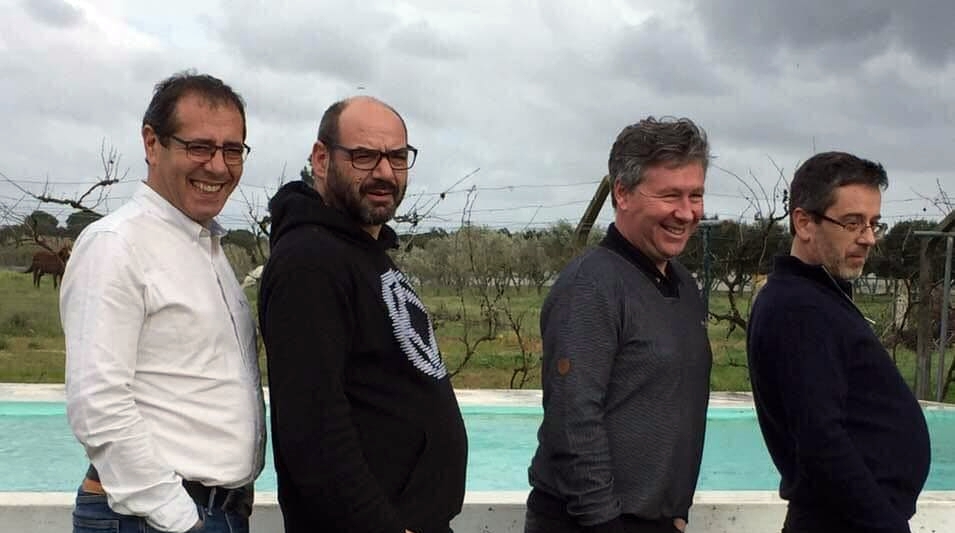The name “Meninos d’Avó”—which translates roughly to “Grandma’s Boys”—immediately transports us to a place of comfort, nostalgia, and genuine Portuguese character. This was the moniker chosen by the Portuguese group that, in the 1990s, brought the sounds and stories of the Ribatejo region to the national music scene, proving that popular music could adopt a modern guise without, however, losing its soul.
Hailing from the lezíria (the fertile floodplains), with deep roots firmly planted in Benavente and the landscapes of Cartaxo, Meninos d’Avó were not merely a product of their geography; they were its chroniclers. Their music drew directly from the life experiences of the people of the Tagus (Tejo) river, from traditions, popular festivals, and that serene melancholy that only proximity to the river can inspire.
The band’s core was formed by the brothers Paulo and Pedro Pereira, central figures in the group’s songwriting and identity. Together with Fernando Nunes (Náná) and Paulo Vilares, they formed a quartet that breathed a shared passion for their land and its people, translating that lived experience into songs.
The personal history of the Pereira brothers is, in itself, a fascinating narrative. Before becoming the “boys” of Ribatejo’s popular music, both were seminarians, following a path that seemed destined for a religious life. This period at the seminary would indelibly mark their worldview and, consequently, their art.
It was a crossroads between the divine and the mundane. As if in a revelation, “the music spoke louder,” as they would later relate. They traded theology for harmonies and liturgy for lyrics, but they brought to the stage a sensitivity, an attention to the written word, and a lyrical depth uncommon in their musical genre.
In 1997, they released their self-titled debut album, “Meninos d’Avó.” It was the perfect calling card. Songs like “Eu Tejo” left no room for doubt about their main muse: the river that had shaped their identity. It was music with a local focus, songs that spoke of a very specific “us,” but which, through their sheer honesty, quickly became universal.
Their recording career was consolidated three years later with the album “Há dias assim!” (Some days are like that!), released in 2000. This work confirmed the group’s maturity and their ability to create a unique sound, one that balanced folk, pop, and the singer-songwriter tradition.
On this second album, the group demonstrated remarkable versatility. On one hand, they had the popular, lighthearted, and almost roguish streak of “Rap’ó Taxo,” a track that became a small phenomenon for its social satire. On the other, they showed a keen sensitivity in ballads like “Os Mares” (The Seas), which featured the poetic pen of Mafalda Veiga.
What defined Meninos d’Avó was, above all, their good nature and deep connection to their community. They were seen as accessible, easy-going musicians, just as likely to perform to raise funds for local parish repairs as they were to play on larger stages. There was a down-to-earth honesty in their demeanor, a natural ease that contrasted sharply with manufactured pop stars.
Although they may not feature in the grand anthologies of Portuguese rock, Meninos d’Avó left an indelible mark on popular, roots-based music. They represented the voice of a Ribatejo that was modernizing but refused to forget the scent of the soil and the sound of the river. To listen to “Elogio da Noite” (Eulogy of the Night) or “Cá Vamos Indo” (Here We Go) today is to return to that place of affection promised by the band’s very name.
Here are some videos of the band Meninos d’Avó available on YouTube:
- Há dias assim! – Meninos D’Avó http://www.youtube.com/watch?v=ZA-IJ0fCt9s
- Meninos d’Avó – Eu Tejo http://www.youtube.com/watch?v=ey-9ELAVmos





